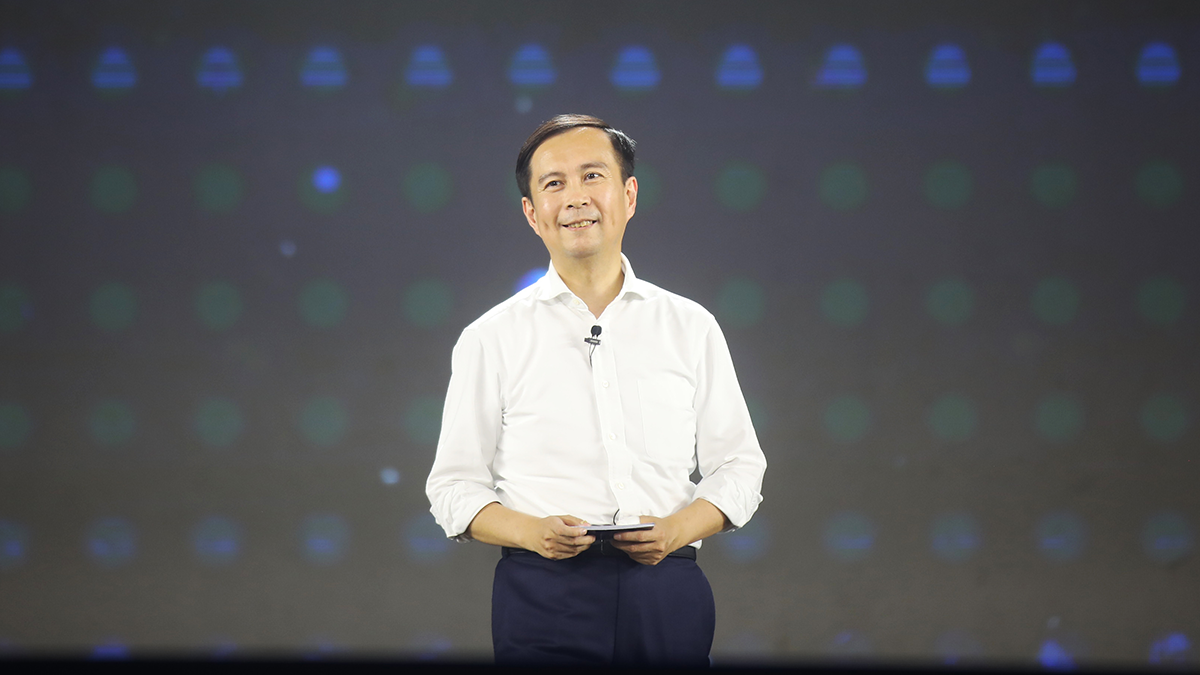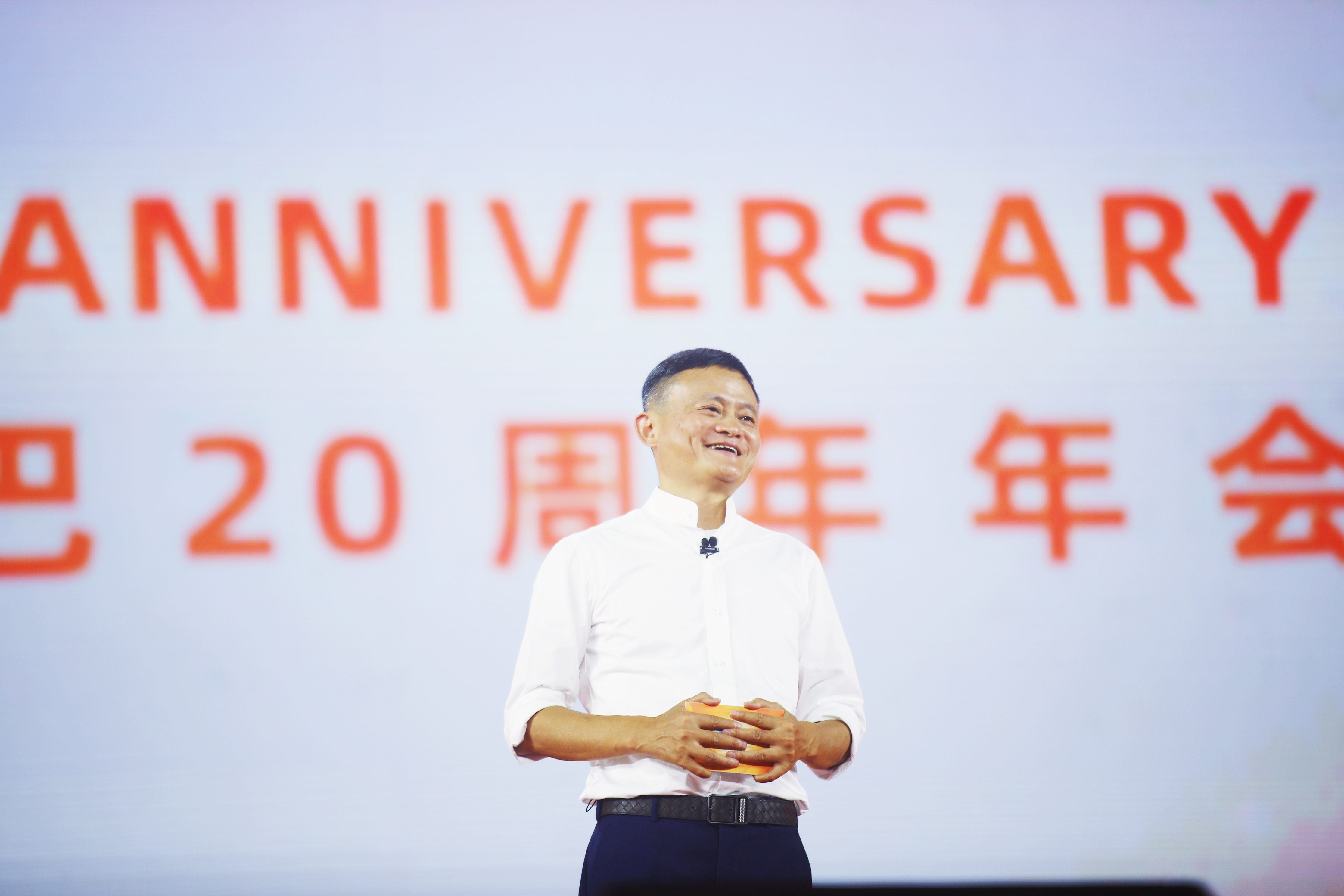
Alibaba Group celebrated its 20th anniversary on Tuesday with a gala celebration in Hangzhou, highlighting its journey from 18 founders of a tiny e-commerce startup – launched from Jack Ma’s small apartment – into the $447 billion enterprise it is today, with about 100,000 employees working in dozens of businesses in offices around the world.
It was also Ma’s final appearance as executive chairman, as CEO Daniel Zhang was set to take over. However, Ma will remain on the board of directors until next year, and he is a lifetime member of the Alibaba Partnership, the company’s governing body.
In his final speech, Ma addressed those staff, telling them that the celebration was not about his retirement but rather “the beginning of a legacy of succession.”

Alibaba has long prided itself on its corporate governance, particularly its use of a partnership system that was created to ensure that the culture and ethos that have underlined the company and its approach to business for two decades remained intact long after the founders were gone. That focus on a responsible transition is what drove Ma’s decision to announce that Zhang would succeed him as chairman a year ago, offering customers, employees and shareholders that same visibility.
“It’s not about the choice of an individual, but the success of a system,” Ma said during his speech.
Alibaba’s rise has closely tracked – and, the company said, contributed to – China’s economic development. When Alibaba launched in 1999, China had only the most basic retail infrastructure, just 8.8 million internet users and a per-capita income of less than $800. Now, those numbers have soared to more than 800 million internet users, a per-capital income of more than $8,000 and total e-commerce turnover of more than $1 trillion. According to research firm eMarketer, China currently represents 54.7% of the global e-commerce market, a share nearly twice that of the next five countries combined. In a release, Alibaba said that about 40 million people were directly and indirectly employed by Alibaba’s e-commerce ecosystem in China.
WATCH: 20 Years of Alibaba History in 3 Minutes
Still, Ma, who turned 55 on Tuesday, also used his speech to emphasize that Alibaba should be a company focused on effecting change in the world rather than one chasing only profits. He said that Alibaba’s biggest decisions, in fact, had nothing to do with money at all.
“Behind each of our decisions – the technology we invest in, the products we create – we consider whether they can solve society’s problems, whether they are driven by our mission, vision and values,” said Ma.
For the next 20 years, Ma called for Alibaba to make the world “greener, more inclusive and sustainable.”
WATCH: Jack Ma Returns to Birthplace of Alibaba
Zhang spoke about the future as well, saying that Alibaba’s goal was to service more than 1 billion consumers globally and handle over RMB 10 trillion in transactions in the next five years.
Alibaba also needs to help enterprise customers fully digitize their businesses, including commerce, finance, logistics and cloud computing, he said. Marketing, channel management, manufacturing, product design, customer service and organization management were all things that the “Alibaba Operating System” could help to digitize as well.
“Only through this can we help all businesses move towards a digitized and intelligent future,” Zhang said.
But, like Ma, there was a sense of altruism in that mission.
“We want to continue to create value for society, solve society’s problems and be a company that shoulders social responsibility,” said Zhang.
“If our efforts help improve society even in a small way, that makes us truly happy. We hope our customers and partners perform better than we do,” he said.
Alibaba marked its anniversary by updating its corporate values. In a release, Alibaba said that just as its business has evolved, so had the world. Therefore, the company’s values had to keep pace with those changes and remain relevant to its global workforce. The announcement follows Alibaba’s recent reaffirmation of its mission statement – “To make it easy to do business anywhere” and an update to its vision, clarifying its intent to be a “good company that will last for 102 years” in the digital era, rather than pursuing power or scale.
WATCH: Alibaba’s Six New Values Explained




